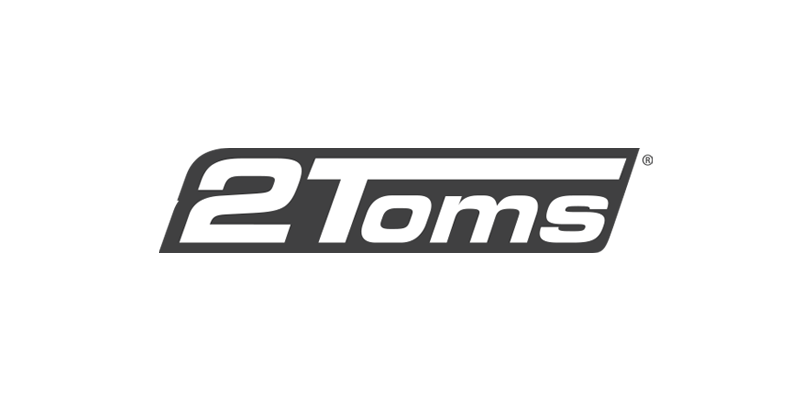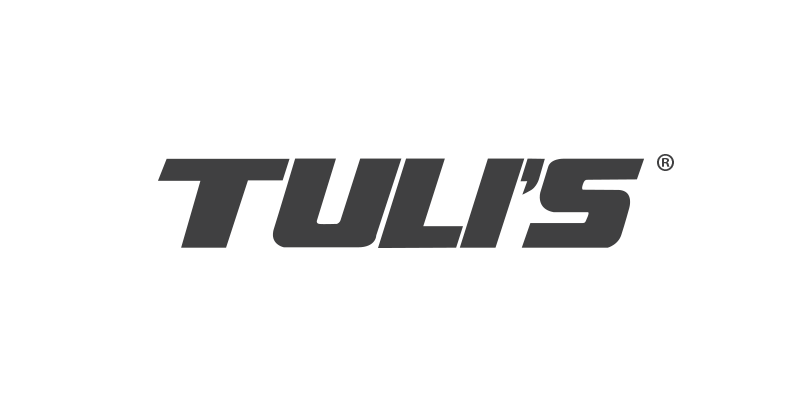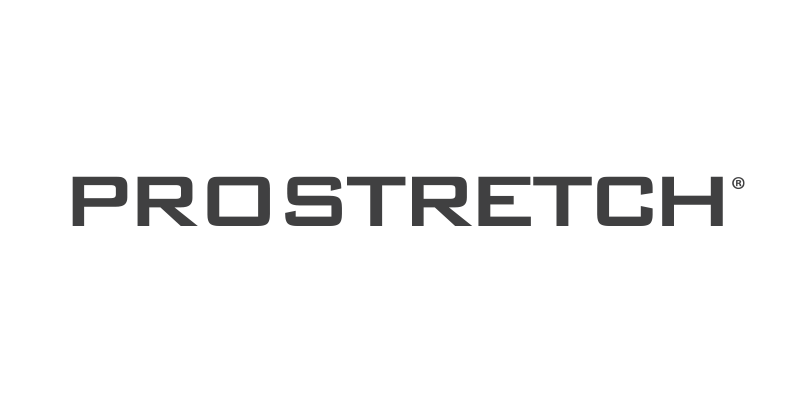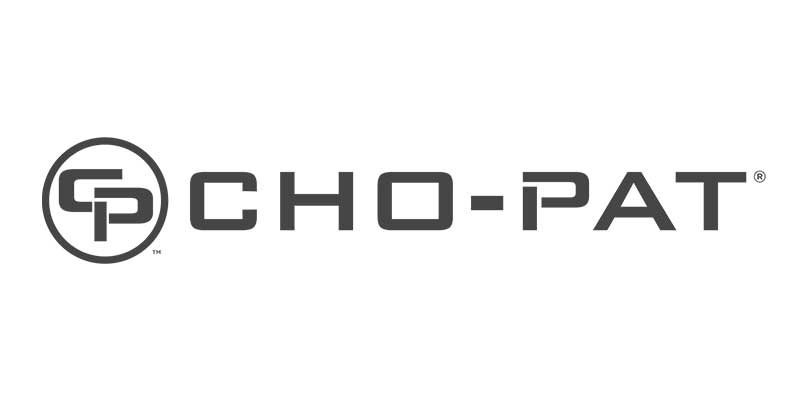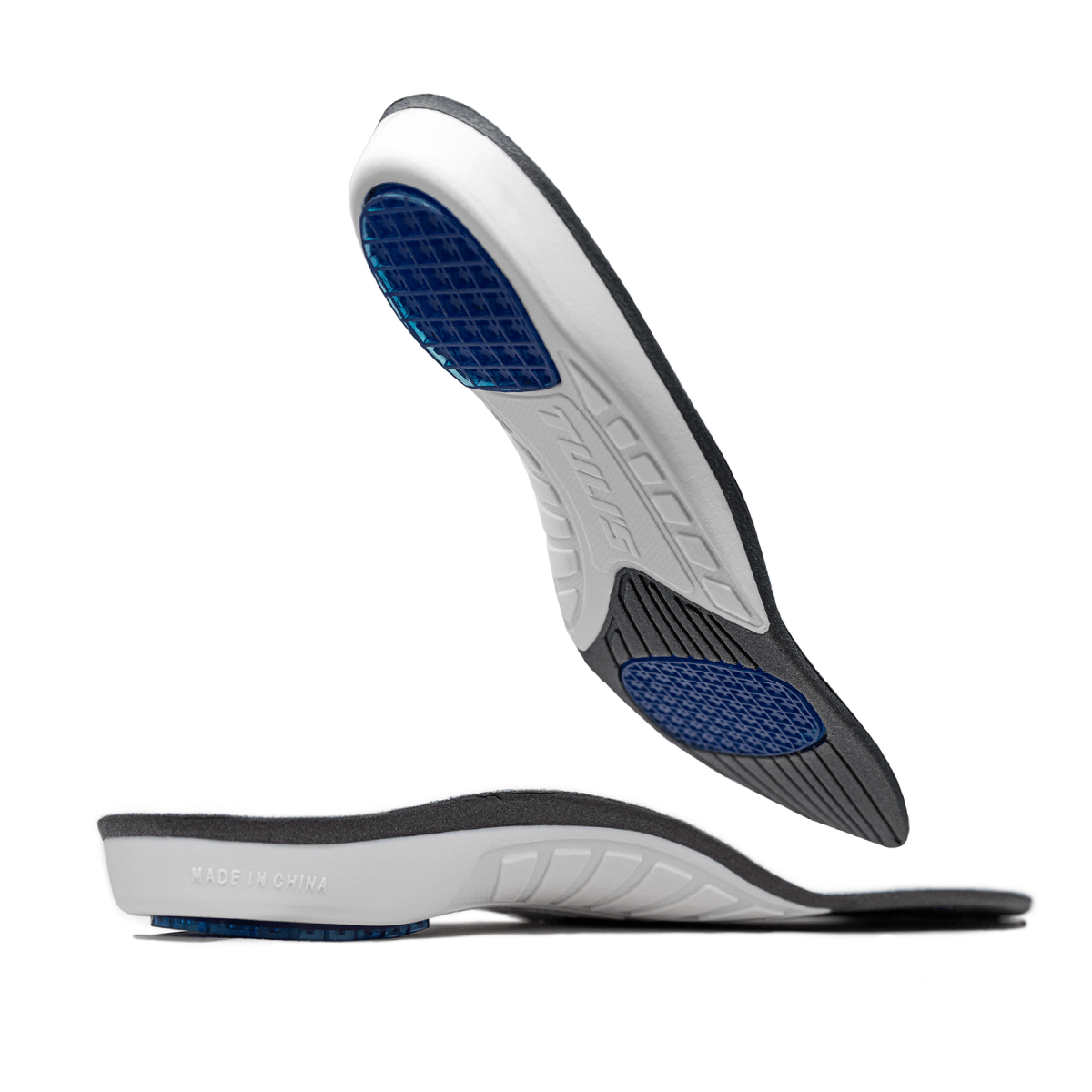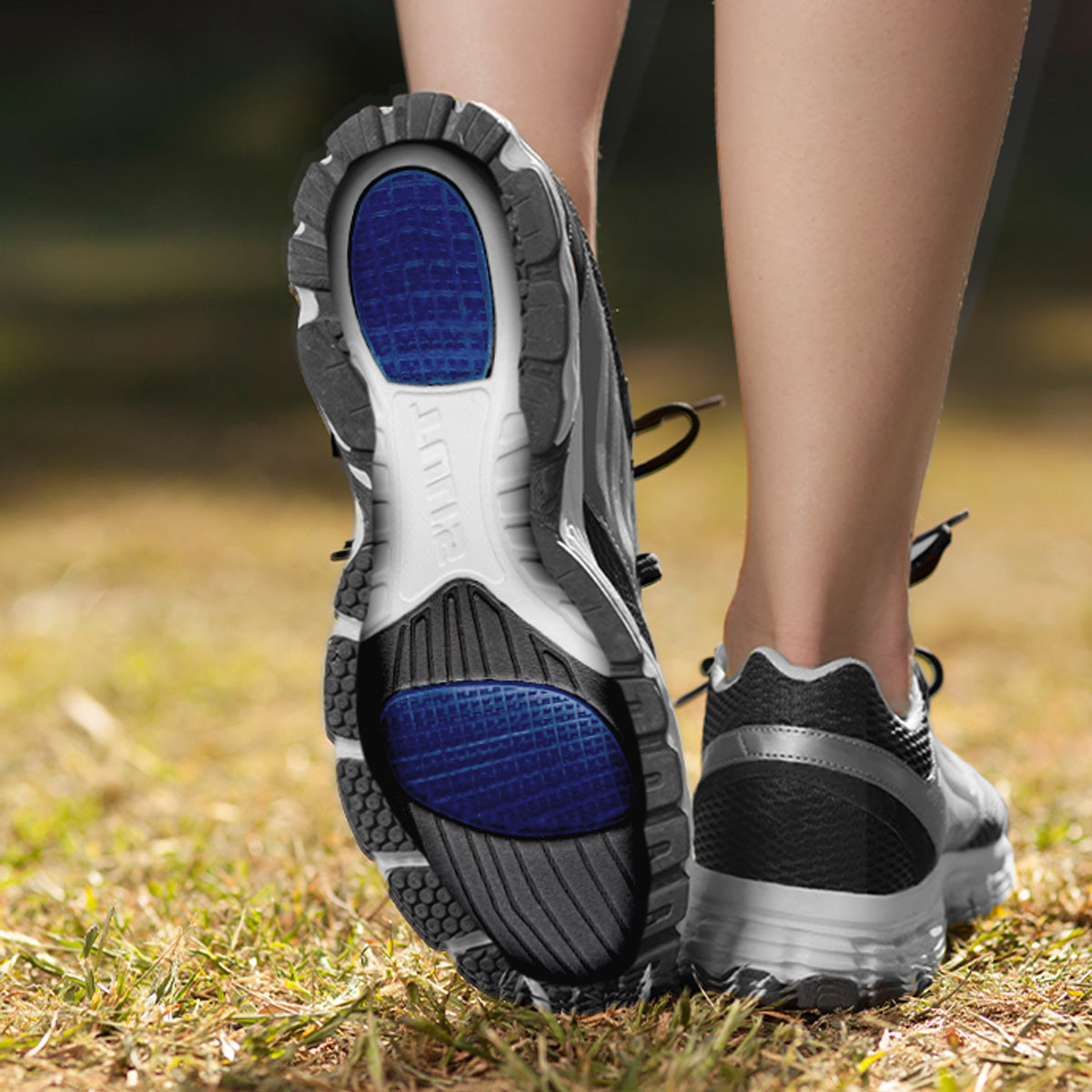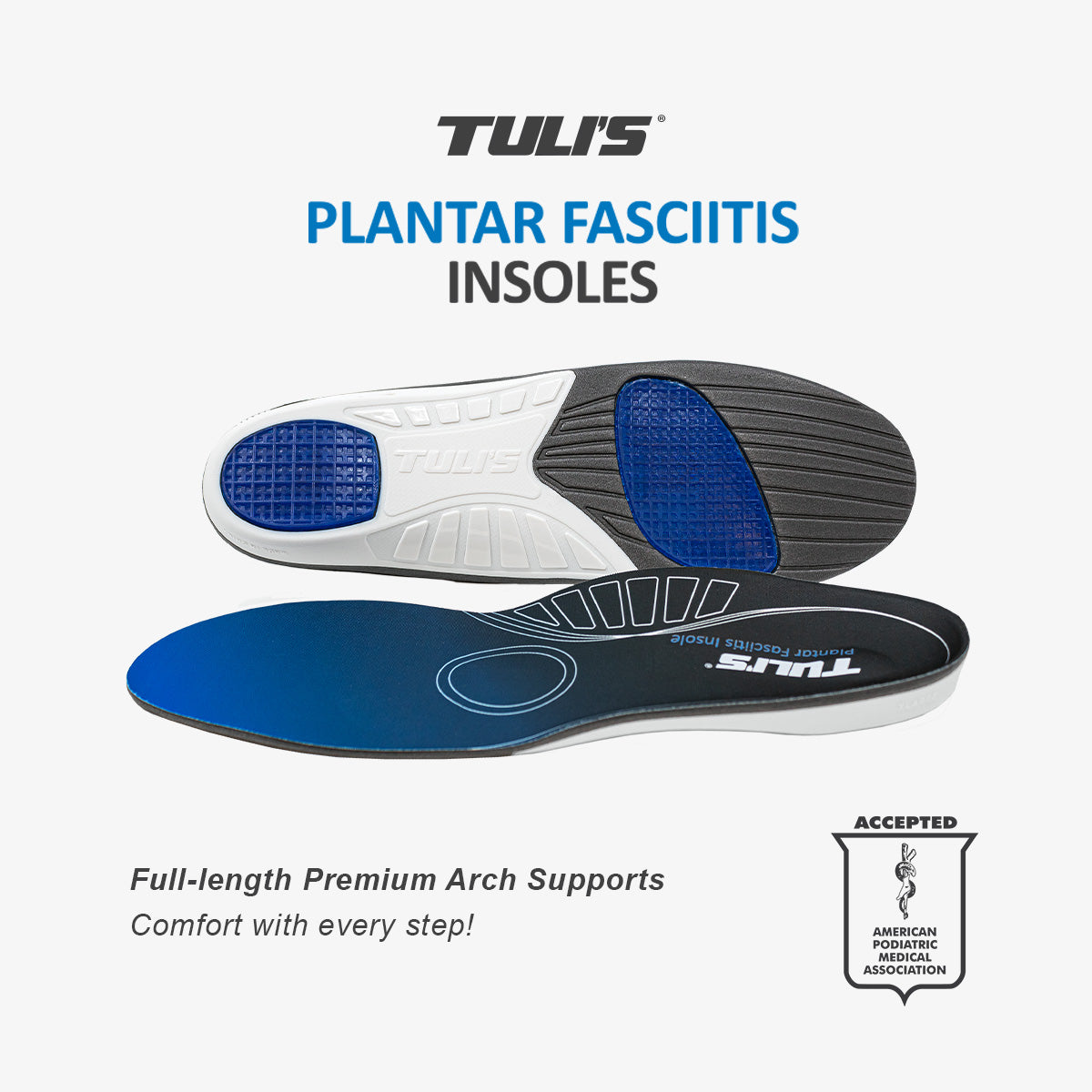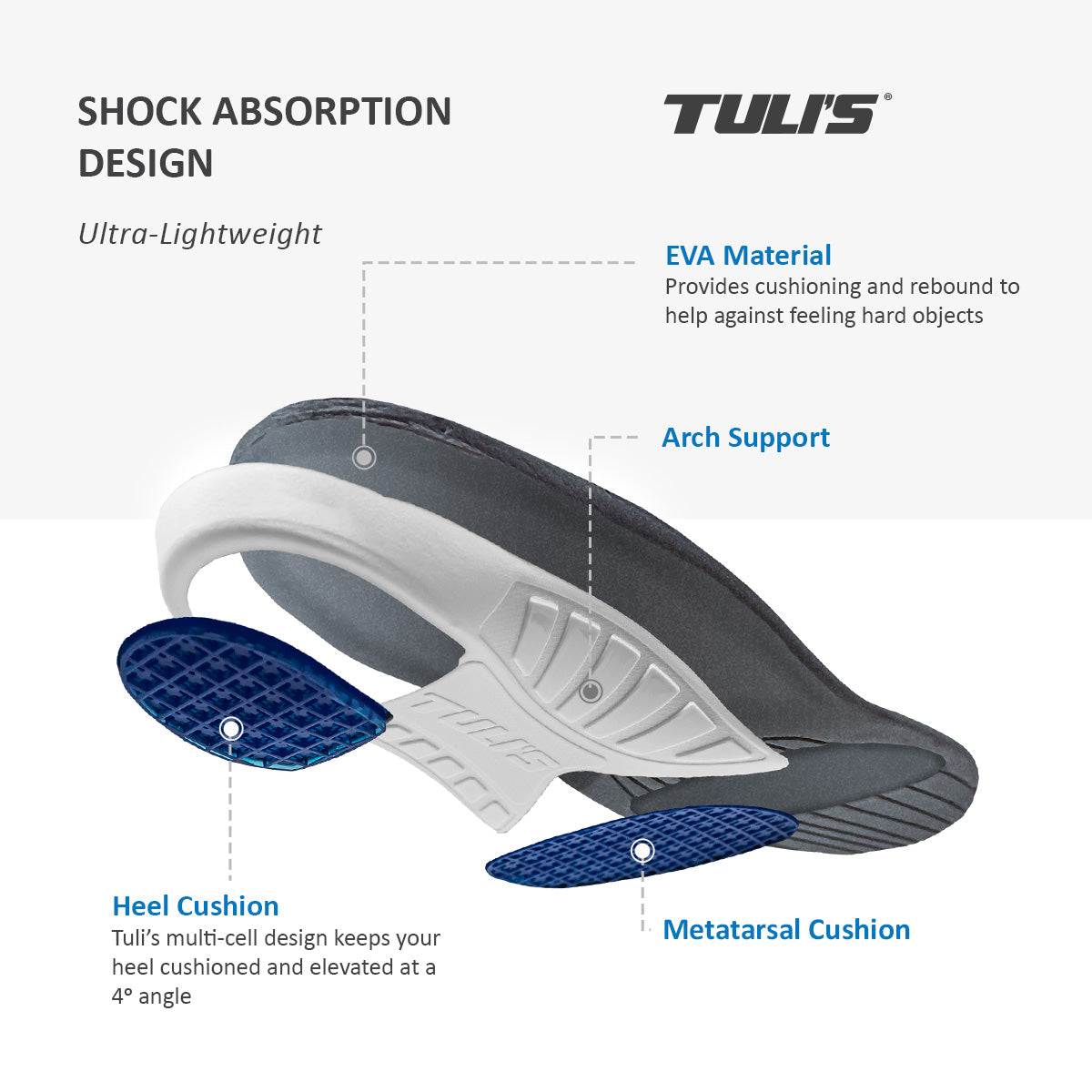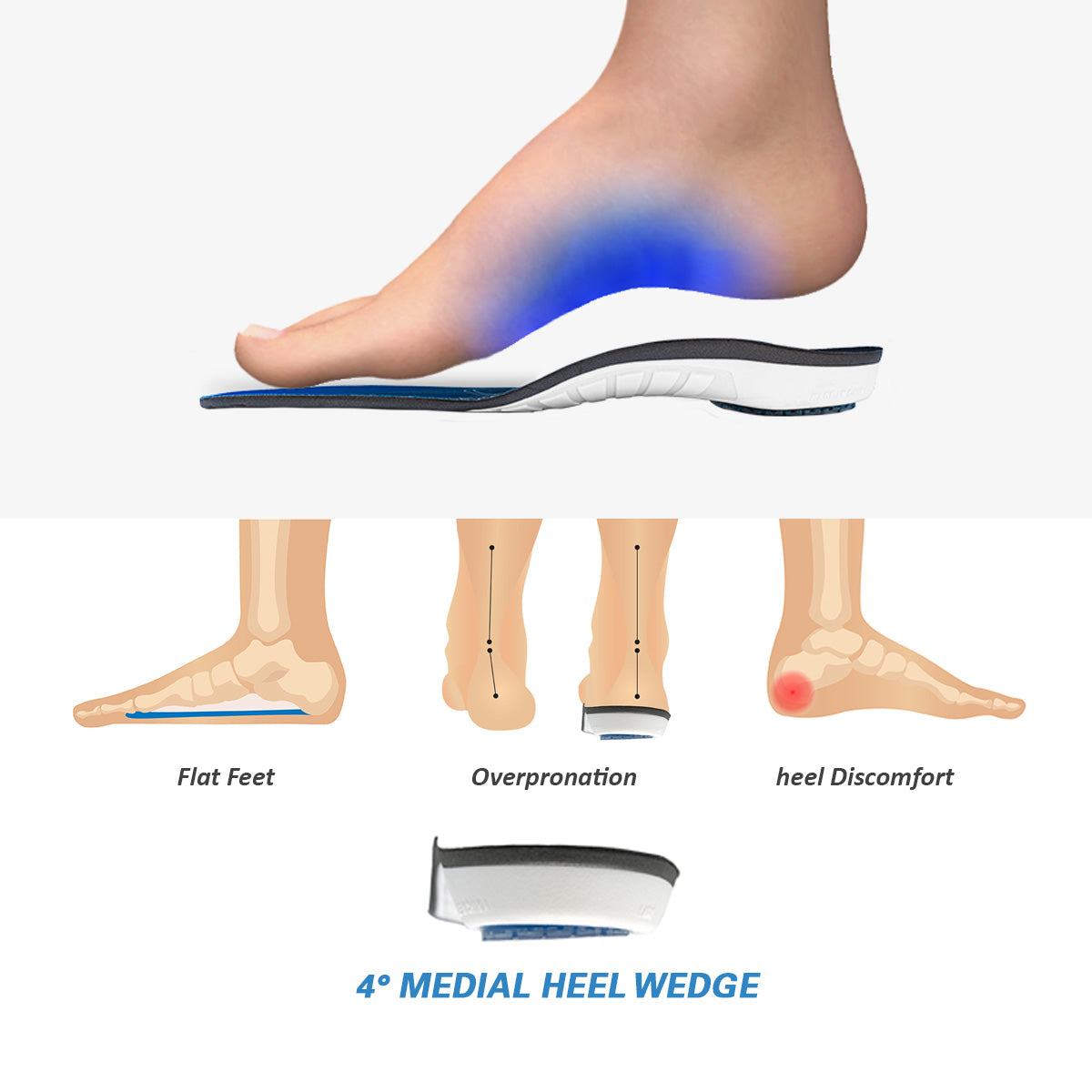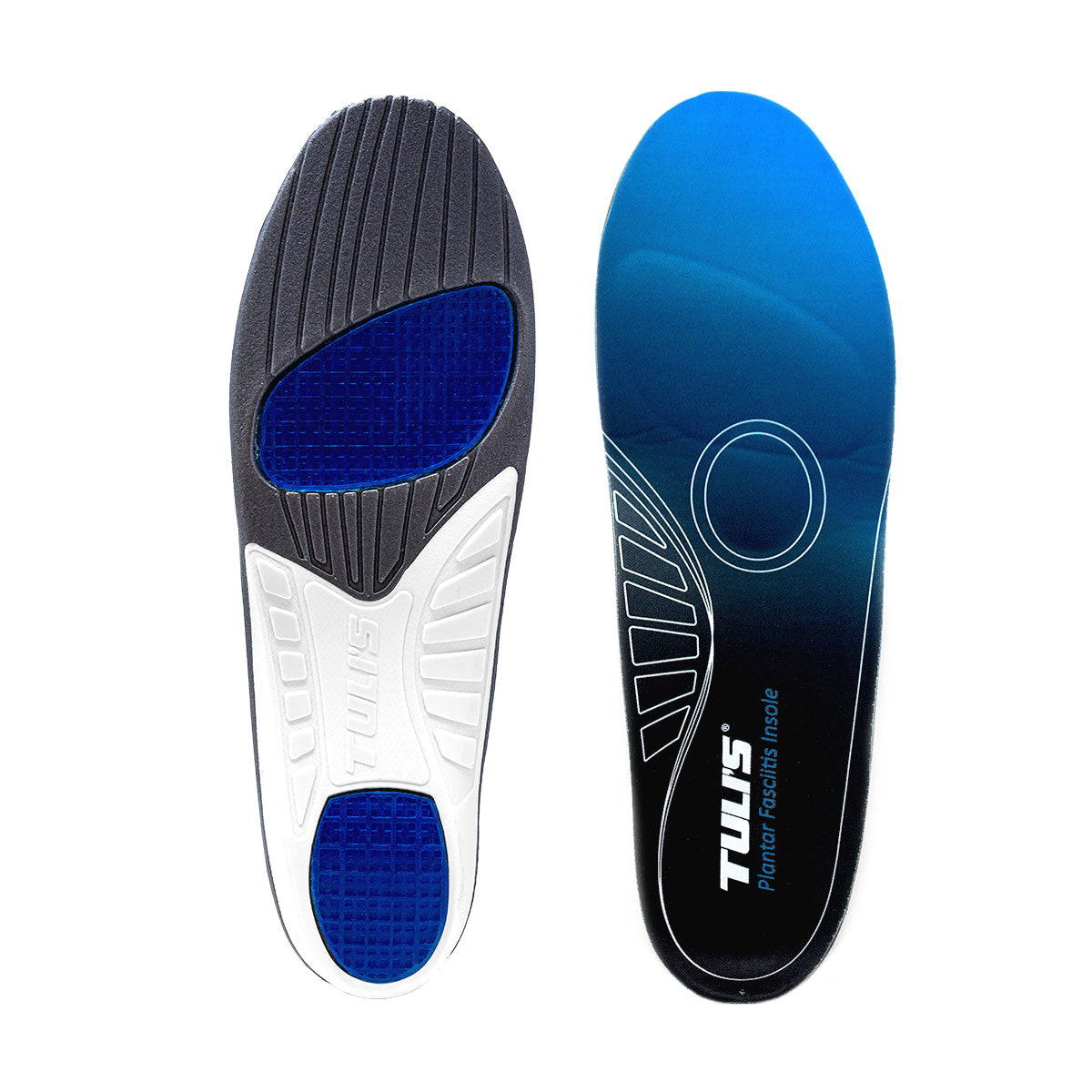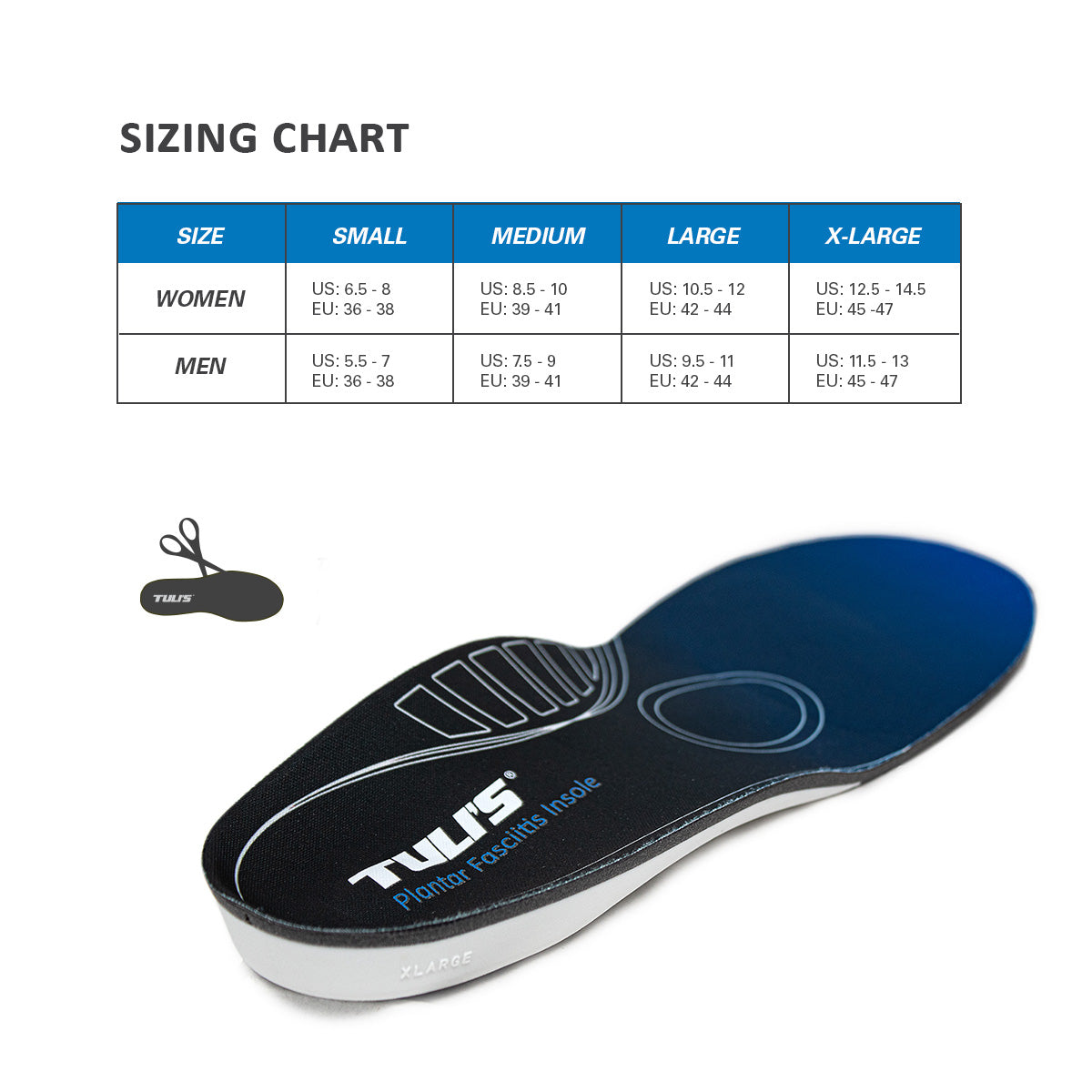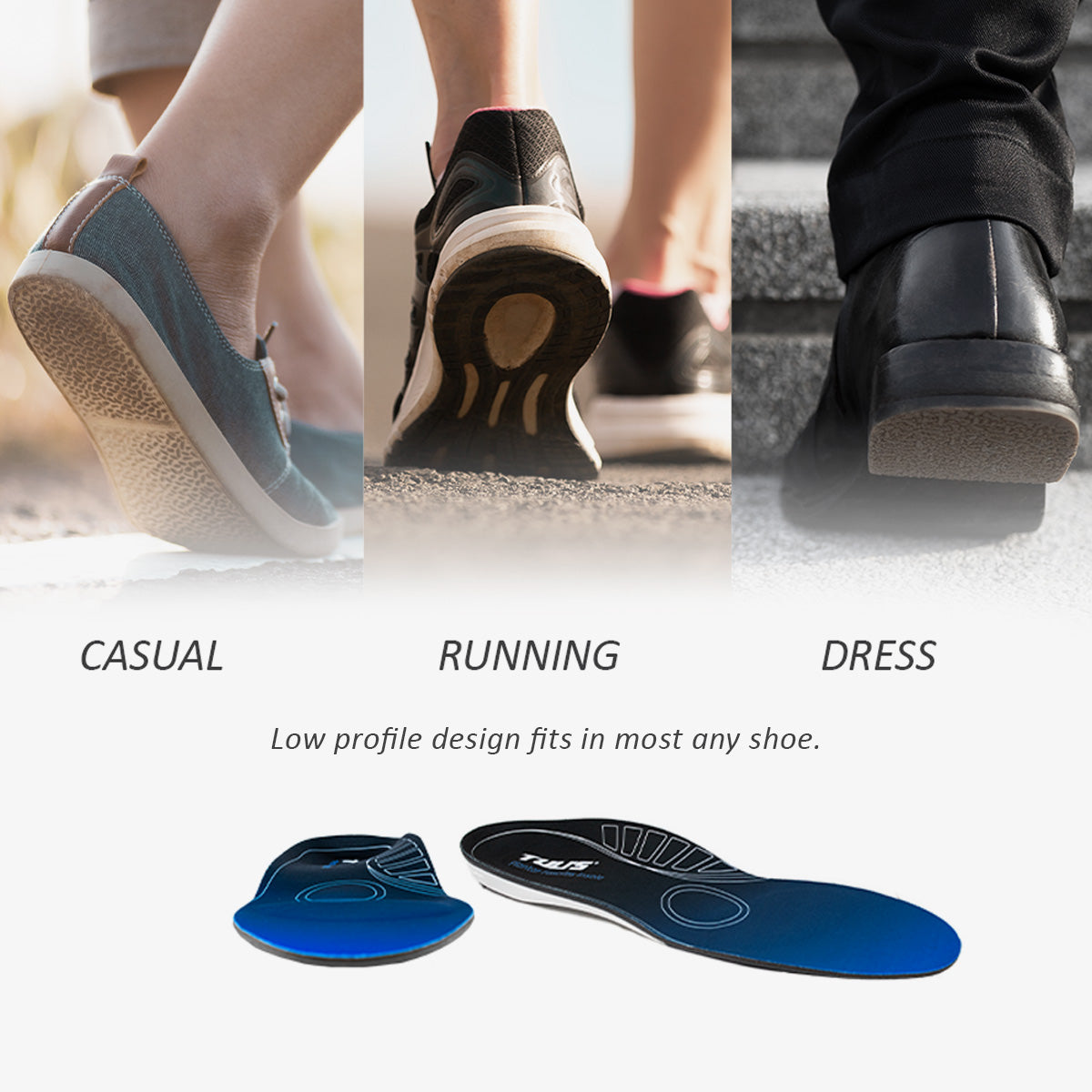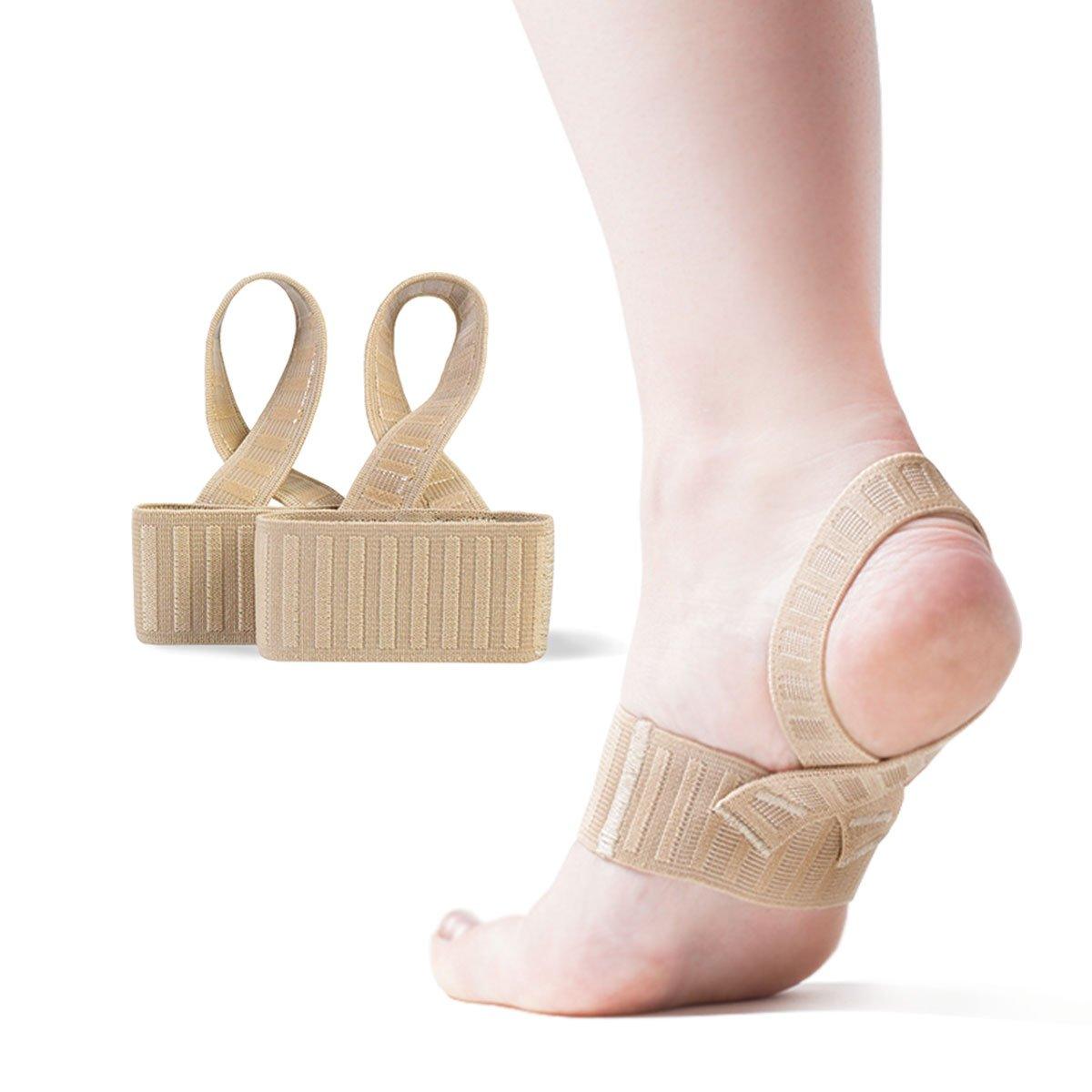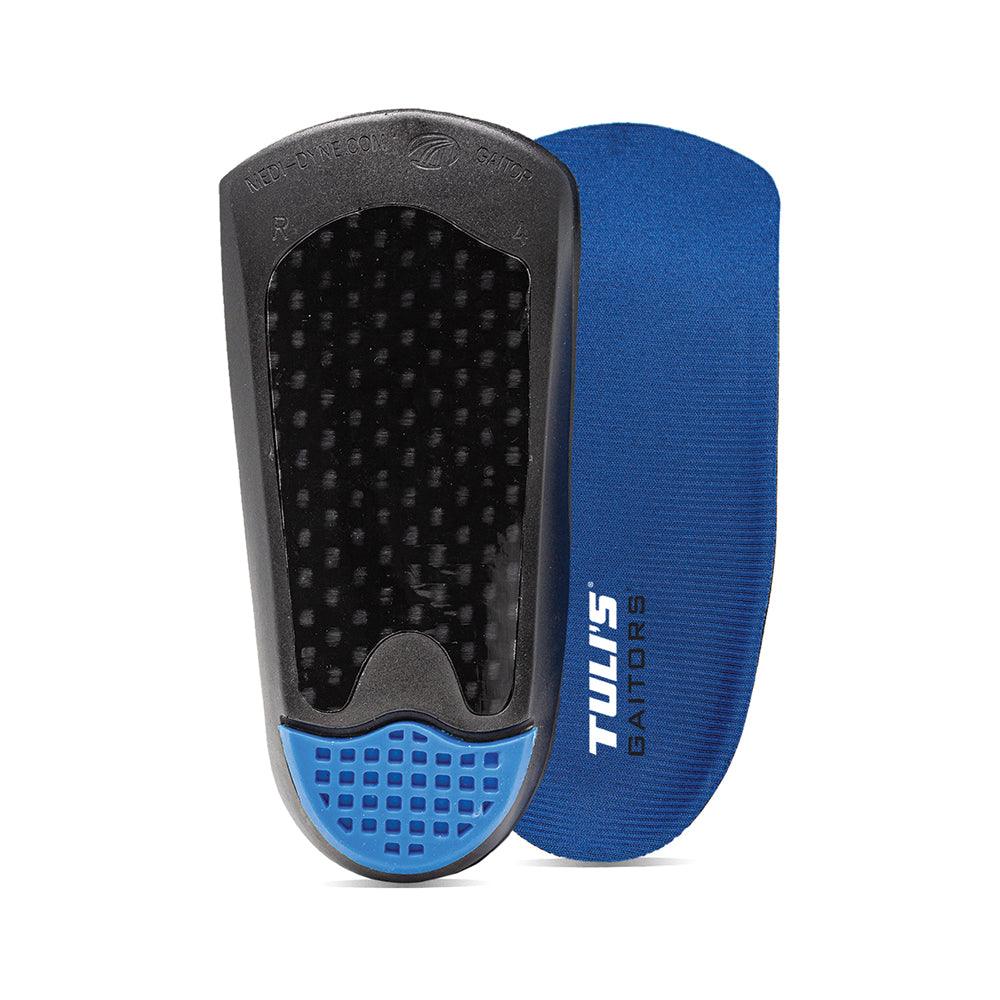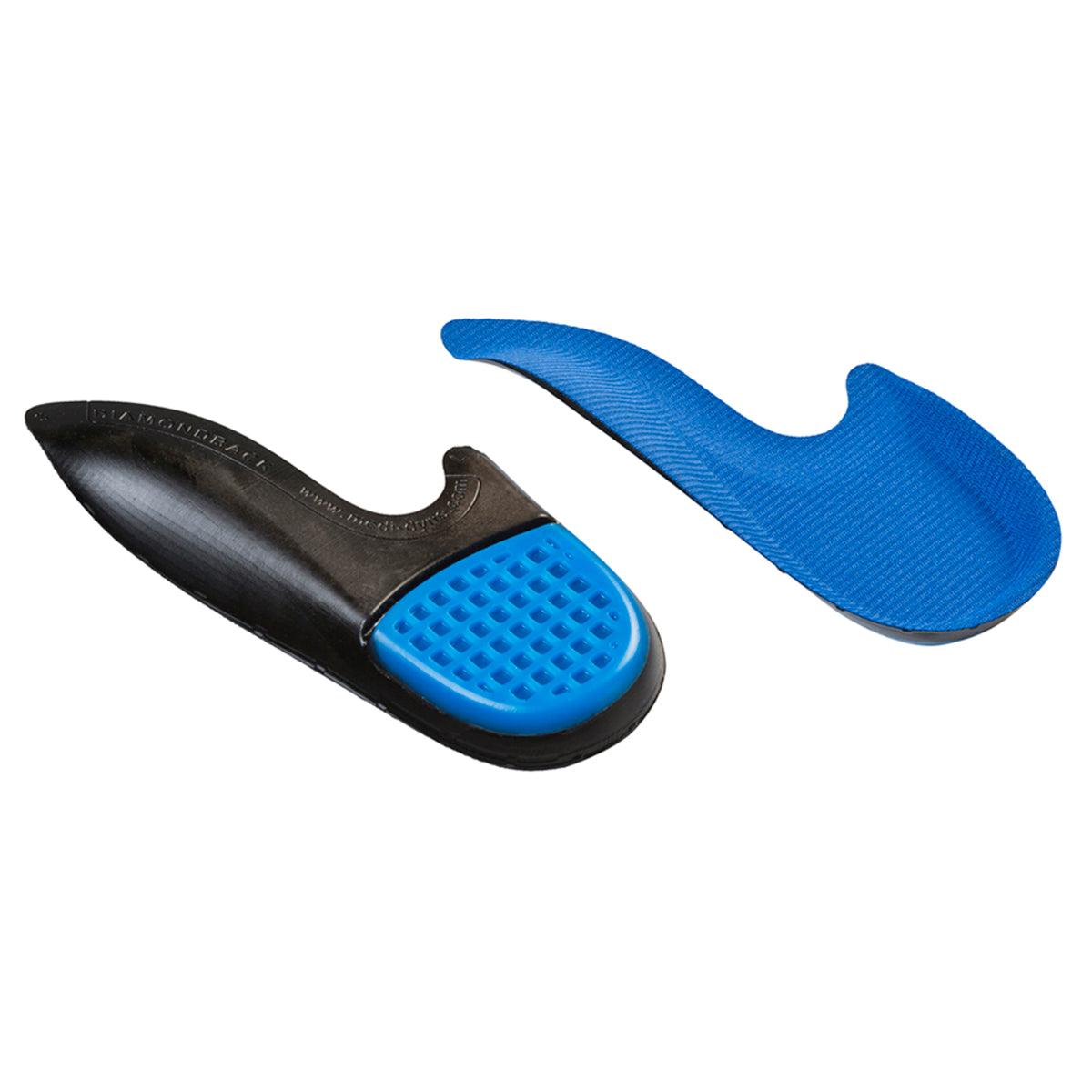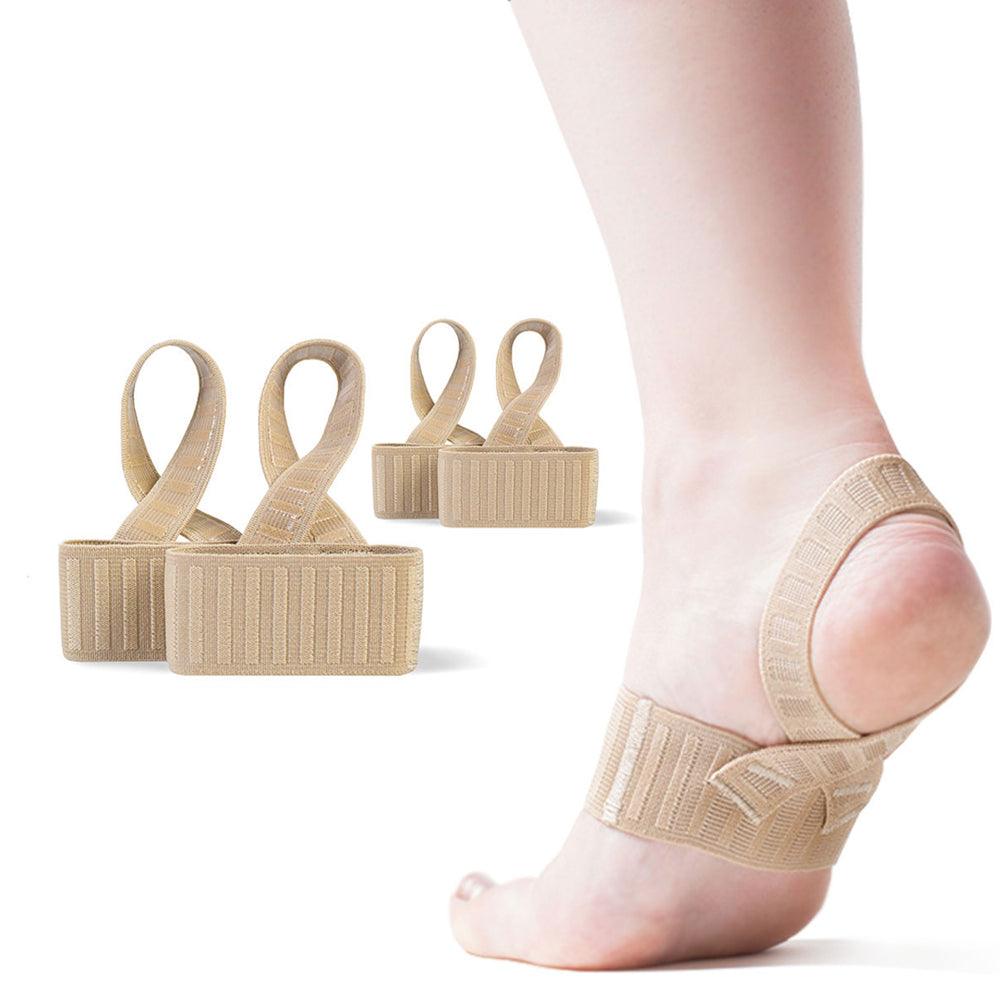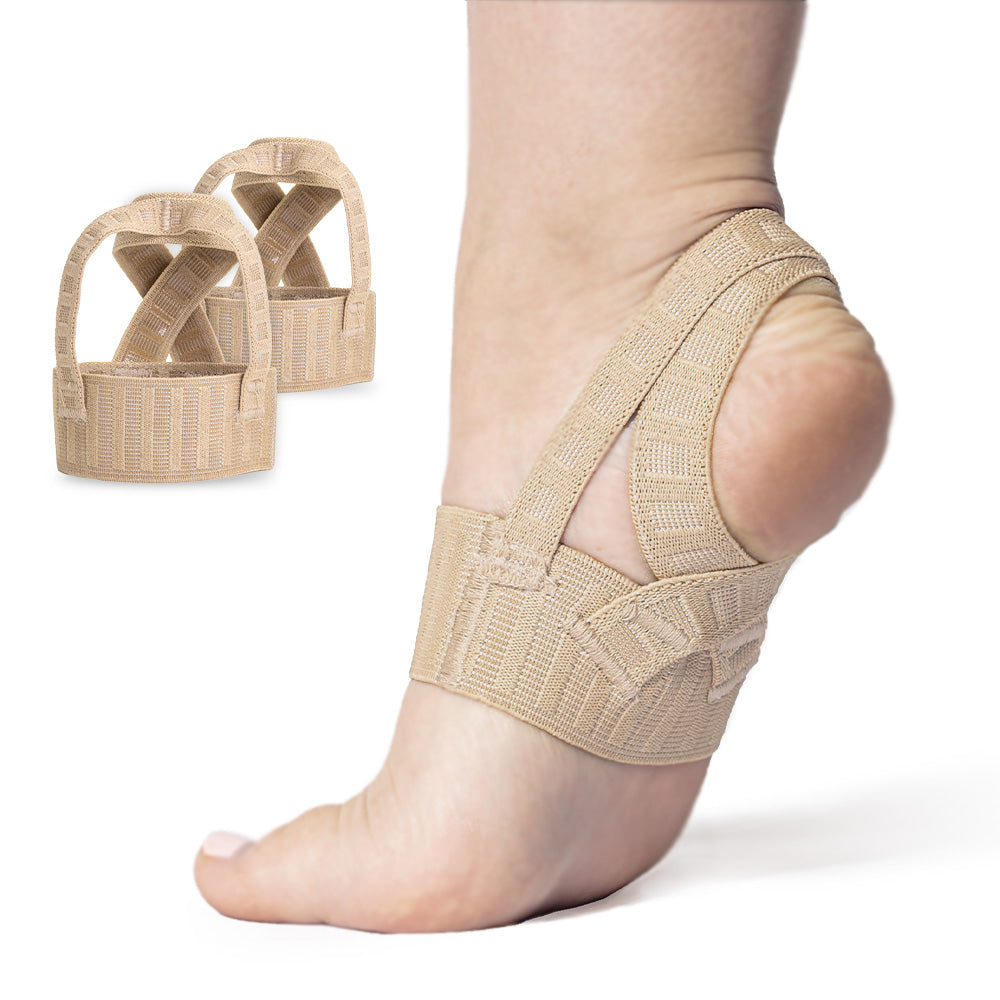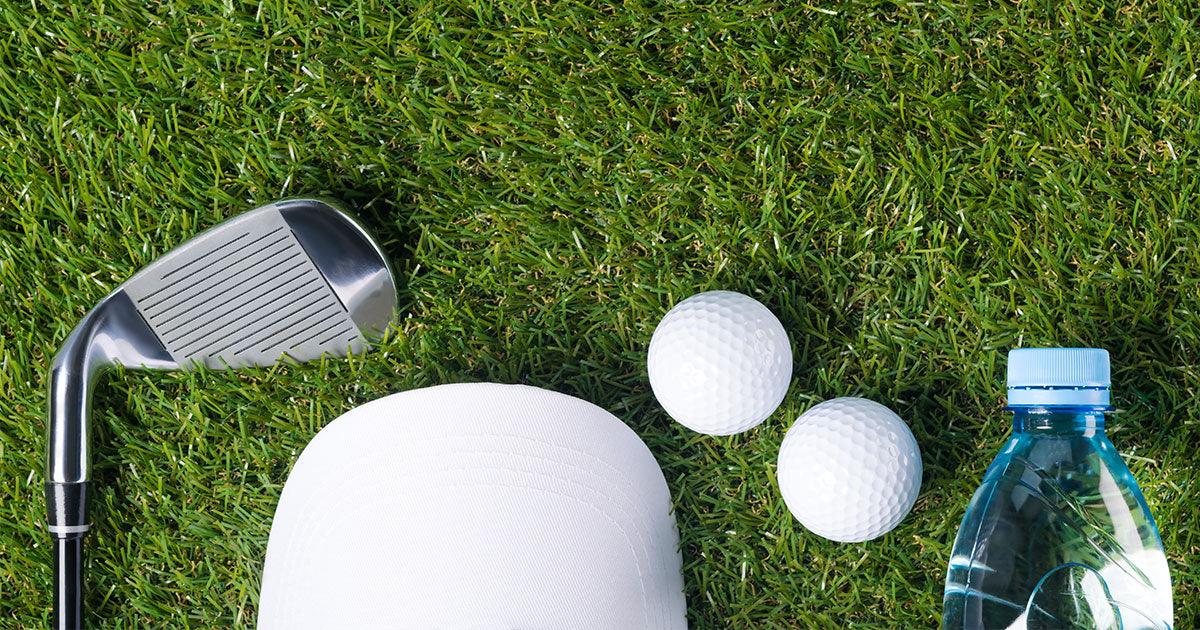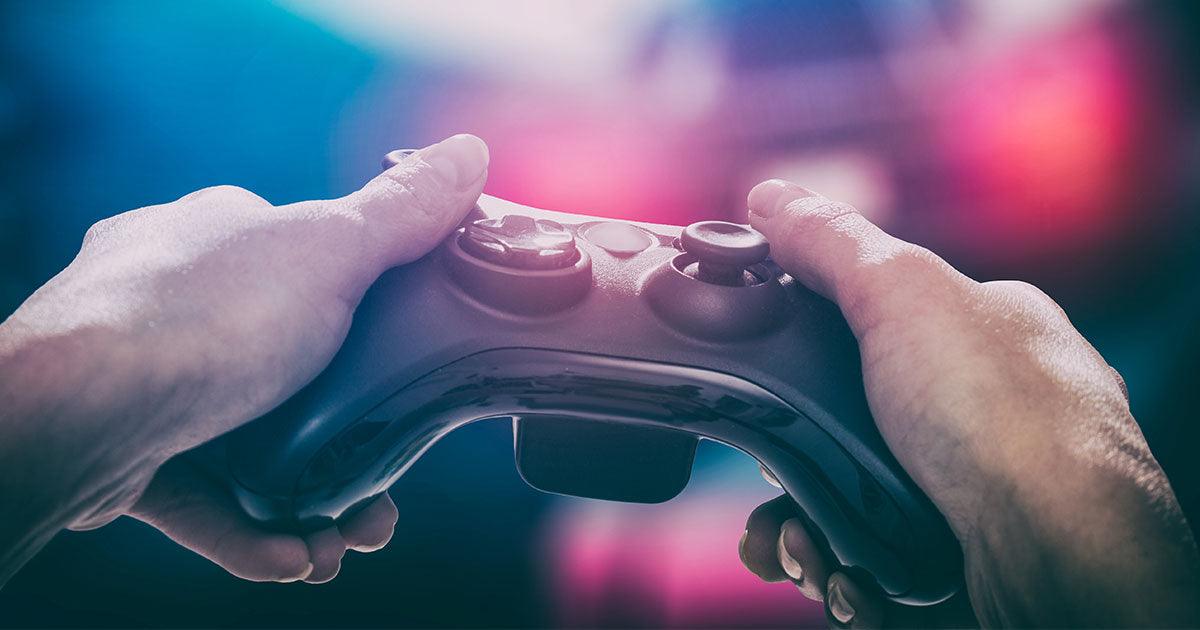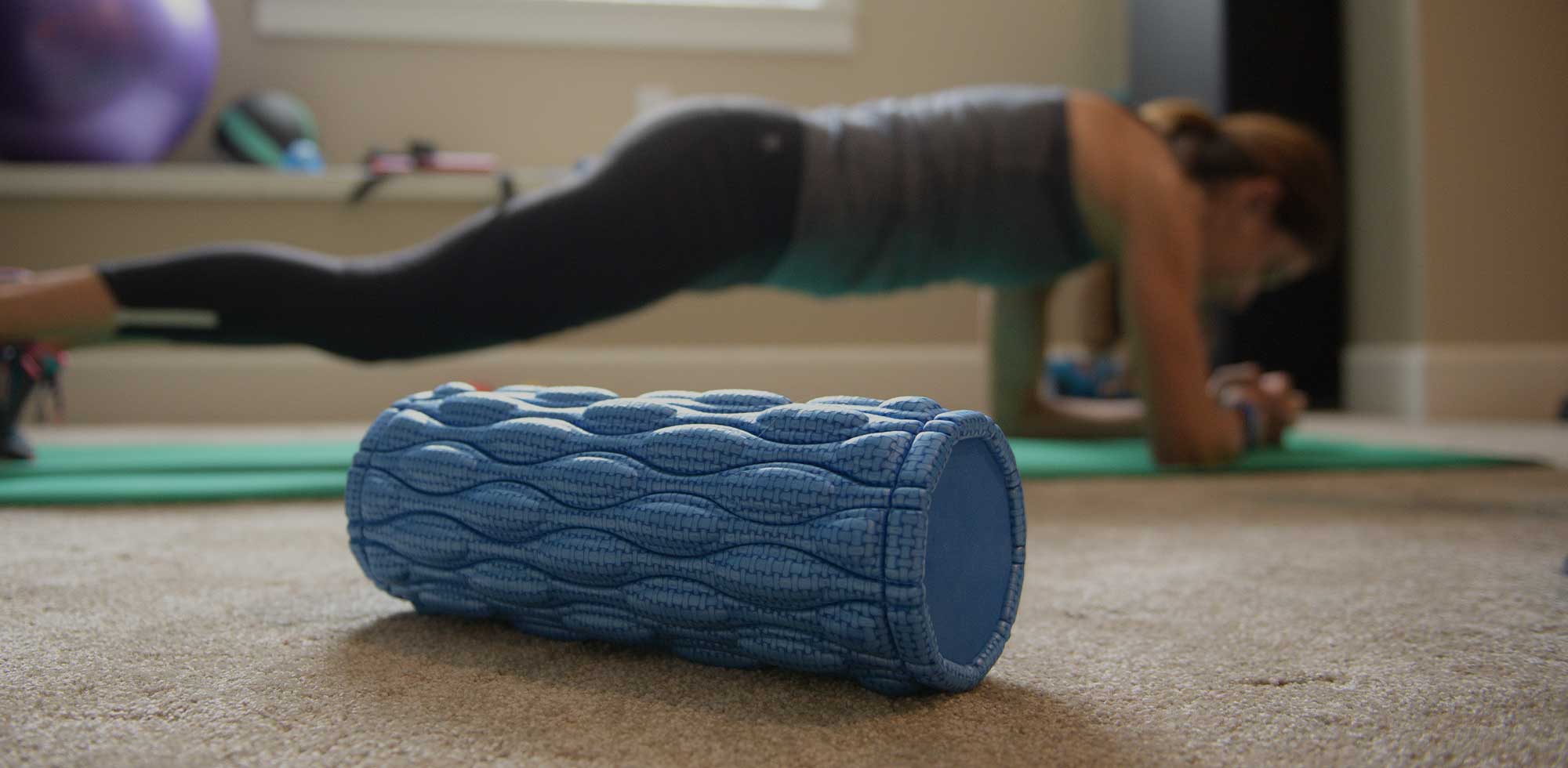Running is a common and excellent form of exercise. Even at a slow pace, it definitely can measure up to cycling and athletic swimming in metabolic equivalence.
Unfortunately, injuries are common in runners, and if you may very well find yourself asking, “why does my heel hurt when I run?” According to a report by the American Family Physician, there’s a 27% injury rate in novice runners, 32% in long-distance runners, and 52% in marathon runners.
Every runner, irrespective of their expertise, is likely to suffer from heel pain at some point because of the repetitive impact on their feet. If you begin to experience heel pain, it is best that you relieve the pain quickly to avoid further complications.
Why Does My Heel Hurt When I Run?
There are several reasons your heel may hurt while you run, including:
- Having flat feet
- Joint deformity or arthritis
- Wearing poorly fitted shoes
- An underlying issue such as Plantar fasciitis or heel spurs
What is Plantar Fasciitis?
Plantar fasciitis is the inflammation of the plantar fascia, a ligament beneath your foot that connects your heel to your toes. It develops because of repetitive strain injury on the plantar fascia.
These strain injuries could be caused by ill-fitting shoes, jumping, frequent running, or walking. Diseases like reactive arthritis could also cause it.
A common symptom of plantar fasciitis is pain and tenderness at the heel of the foot but sometimes can affect the entire sole of your foot. Plantar fasciitis can make it difficult for you to walk or run properly, especially after being in a rested position for too long.
What is a Heel Spur?
A heel spur, also known as calcaneal spurs or osteophytes, is a bony outgrowth of the heel bone. Although heel spurs rarely cause pain, they can cause some level of pain or discomfort approximately 5% of the time.
They are caused by repeated strain on the foot ligaments and muscles from running, walking, and jumping. Wearing poorly fitted shoes can also cause heel spur.
The symptoms of a heel spur include heel pain and swelling at the front of the heel.
How to Relieve Heel Pain After Running?
Approximately 80% of running injuries that cause heel pain occur due to overuse and would respond to conservative treatment.
Home remedies are effective when you treat heel pain as soon as you detect it. Take a break from your usual sports activities that put a strain on your feet. Apply cold packs to your heel to reduce swelling and take NSAIDs to combat inflammation and pain.
Follow up with feet and calf stretching and strengthening exercises to increase flexibility and orthotic devices for comfort, improved stability, and to correct muscle imbalances. A few products that can help you relieve heel pain during and after running include:
1. ProStretch Plus
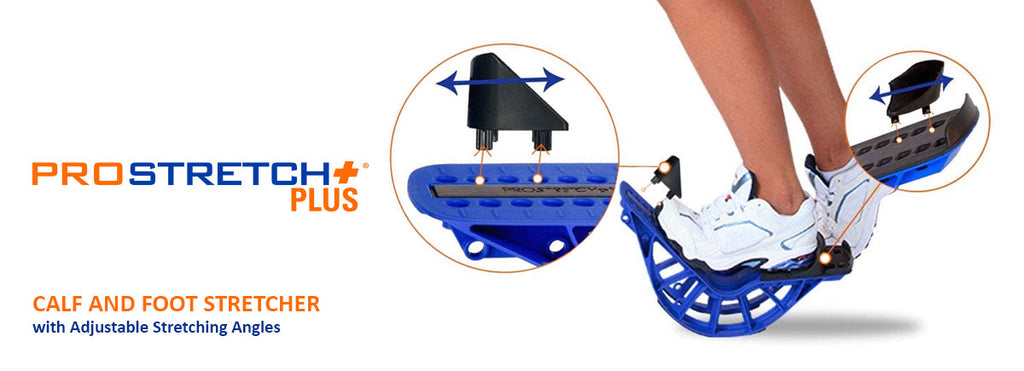
The ProStretch Plus is an excellent device for stretching the Plantar fascia, calves, hamstrings, and toes. It uses technological advancement to reduce the effects of chain reaction injuries. It helps you increase the flexibility of your foot and calf by providing a deep and effective stretch, giving you the needed relief from pain.
The patented ProStretch Plus holds your foot in the optimal position to provide you a biomechanically accurate and efficient stretch. It’s a great tool to help you prevent and treat Plantar fasciitis.
It fits your foot perfectly because of its unique adjustable features that allow you to adjust it to your foot and customize your stretch.
2. Tuli’s Plantar Fasciitis Insoles

Tuli’s Plantar Fasciitis Insoles are full-length arch support specifically designed to provide relief from Plantar fasciitis. It provides you with added comfort in each step by evenly distributing your body weight pressure throughout your feet. This even distribution helps you improve balance, stability, and posture.
These insoles use a 4-degree angled heel to help correct misalignment. It absorbs shock, just like your foot would naturally do by providing cushioning with its multi-cell and multi-layer design.
It is also comfortable enough to be worn with any shoe and for any occasion. You can refer to the sizing guide to find your perfect fit.
3. Tuli’s X Brace

Tuli’s X Brace is an elastic foot brace designed to treat heel pain associated with plantar fasciitis. The Unique “X” design of this foot brace provides support and decreases pressure on the arch to effectively reduce foot pain.
Its silicon strip on the heel strap has an excellent grip, but still comfortable. It is a great replacement for professional taping.
It can be worn alone or with anything, including socks and shoes. Wear for a few hours each day and gradually increase the hours as the day goes by. This brace can be worn during or after activities but should not be worn while sleeping.
4. NEW Tuli’s So Soft Heel Cups

These heel cups are biomechanically designed to provide you immediate relief from heel pain. It elevates the heel bone by taking pressure off the Achilles tendon, which automatically decreases the tension and increases flexibility.
Although they’re soft and lightweight, they provide substantial support for your feet.
Choose Medi-Dyne to Help Relieve Your Heel Pain
Why suffer heel pain when you can easily get the solution you need from Medi-Dyne? Our products are developed and recommended by medical professionals to aid in your recovery process.
Need further help in picking the right product for your heel pain? Contact us by phone (800-810-1740) or email today.
OTHER RELATED TOPICS:
HOW ARE PLANTAR FASCIITIS INSOLES DIFFERENT FROM REGULAR INSOLES?
5 THINGS A PLANTAR FASCIITIS INSOLE MUST HAVE TO BE EFFECTIVE
5 BEST HEEL CUPS FOR PLANTAR FASCIITIS
PLANTAR FASCIITIS, A REASON TO WORRY?
5 REASONS WHY YOU SHOULD STRETCH IN THE MORNING
PLEASE NOTE: The information on this website and article is for information only and should not be used as a substitute for consulting your doctor. Consult your doctor for proper diagnosis and rehabilitation.
